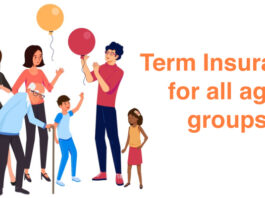
We hear it all the time: “I’m sending out my resume, and I’m qualified for the position, so why is my resume not getting interviews or callbacks?”
In the best of times, responding to a job listing can feel like sending your resume out to sea in a bottle. But at least you received a call or an email acknowledgment. With the volume of applicants higher than ever, you’re more likely to hear nothing.
If there is a resounding silence from your queries, keep looking and networking. But you can also do some sleuthing to give you a better chance of standing out next time. Recruiters and career experts agree that if you didn’t get an interview or phone call- or even a thank you mail, it might be due to one of the six reasons below.
In this article, we’ll discuss the possible reasons and go through some fixes that will land you more interviews…and, ultimately, the job.
Poor resume formatting
Today, many employers use applicant tracking systems (ATS), software that scans resumes for certain keywords that are typically tied to the job description. They are programmed to send forward the resumes it feels are a good fit for the job. They do this based on the information and keywords in your resume.
However, keywords are only one part of the equation. The ATS also reviews resumes based on certain formatting elements, and not following the guidelines may cause your resume to be passed or misread by the software. Avoid using tables or graphics with embedded text, as these design features may interfere with how an employer’s applicant tracking software screens the resume.
These systems delete about 76% of resumes sent. That means if 250 resumes are submitted, over 170 are deleted and never seen by human eyes.
Ensure your resume is formatted correctly and contains the correct keywords to bypass these systems. You should also send your resume as a .doc file, not a PDF.
They’re Not That Into you.
You’re good, but someone else was better off. In a tight job market, employers can usually get exactly the type of candidate they want. A polite “thanks, but no thanks” letter or email would be nice. But don’t expect it these days from employers.
They Would Have Been into You If You Had Followed Directions
many job listings use the word ‘must,’ not. ‘ It would be nice too. “If it says you must have experience in Audit, for example, you should tailor your resume to show that.”
If you’re answering a job listing, be sure you respond exactly the way the company wants. And be aware that if you’re not applying for a specific job but rather sending out dozens or hundreds of form letters, your resume is likely to end up in companies’ spam folders.
Your resume has responsibilities but not accomplishments.
The next reason you might not be getting job interviews is related to your resume, specifically your employment history section.
Most job seekers make a big mistake here, listing responsibilities only.
This will not impress a hiring manager or a recruiter because it’s really just telling them what work your boss assigned you to do, not what you accomplished.
Tailored content:
It would help if you tailored your resume to each position you apply to. That doesn’t mean you need to rewrite your resume for each position you apply to, but you can be making minor tweaks and edits to better align your resume with the job description. This can include changing your summary and keywords to fit the job description better.
Sending out more applications isn’t always better – the point is to get interviews, right? What’s better… sending out 20 applications and getting one interview… or sending out 10 applications and getting three interviews?
The choice should be obvious.
You will see a big improvement in your application to interview ratio when you start tailoring your resume.
Your resume is too long.
The modern resume should be short and easy to read. While it doesn’t NEED to be one page, it should certainly be a maximum of 1-2 pages for job seekers in the first 8-10 years of their career.
If you’ve been working just a few years and have a three-page resume, that’s a problem. Your resume is a sales pitch to the company showing how you can help them with their specific job. It’s not a list of everything you’ve ever done… at least not if you want to get interviews.
Your paragraphs should be only a few sentences each, too. Avoid big, bulky paragraphs if you want to get your resume read. Make sure it’s all well-spaced and inviting to read.
You have a large, recent employment gap.
If you have a big gap in employment at or near the top of your resume, you really need to address it. You can list your employment in years instead of months in your employment history if that helps.
Or you can write a cover letter to explain the circumstances of why you left your previous job and how the issue has resolved itself (for example, if you had an illness but have now recovered).
You can take an online course to fill the space and show employers you’ve been staying active even when not employed. You could also do freelance work. Make sure you’re addressing your employment gap one way or another so that it stops preventing you from getting calls for interviews.
Used a resume “Objective” section instead of a Career Summary
Nothing wastes space on a resume and shows a hiring manager you’re old-fashioned than putting an Objective.
Could you not do it? They already know your objective is to obtain their position.
So instead, write a great Career Summary that highlights some of your biggest accomplishments and qualifications that prove you’ll succeed in this next job! That’s how to get interviewed.
Network
The majority of positions today are filled through referrals, and this is another step most people neglect. You need to get social with friends, family, and old colleagues and see if someone can pass along your resume for an opening.
Through your network, there are probably hundreds of people you can reach out to. You’d be surprised at how many people will be willing to pass along your resume to help you out.
Your chances for an interview and securing a job are far greater than a referral. Don’t forget the fact that some employees even receive a bonus from referring someone.
Follow Up
Are you following up after you submit your resume? A follow-up after submitting your resume can set you apart from the rest of the applicants. Many people don’t send a follow-up email, and that’s a mistake.
There is a fine line between sounding desperate and interested so ensure your timing and messages are correct.
Ensure there is no job posting end date. Some job postings (mostly government jobs) have an open and end date. They accept resumes until the end date, so don’t reach out before the closing date as this will look desperate and unprofessional.
If there is no end date, wait around five business days from the time you sent your resume.
If you don’t receive an email, you can try following up in another two weeks.
Search smart
Where do you search for jobs? This will have a big impact on getting an interview and ultimately landing a job.
If you’re using a job board aggregator, there is a ton of competition. Job board aggregators display jobs from all around the web and various job boards.
However, these job boards are generally good indications of who is hiring and what industries are popular.
Although it is a good place to start, that shouldn’t be the only place you look. Here are other places you should look that may not receive as many applicants:
- Government website
- Company website
- Industry-specific website
Summary
Putting time and thought into each application and your job search as a whole is crucial if you really want to land your dream job. Competition these days is high, and the way we find and apply to jobs is drastically changing.
Gone are the days where someone sits reading every resume. Today, companies use software to scan resumes to determine if you’re a good match for the position. If you’re not getting interviews, it could be because these systems automatically screen out your resume. Remember that you need to write your resume for both humans and resume screeners. If you’re not getting interviews, the tips we mentioned above should help drastically.
As always, good luck with your job search!














